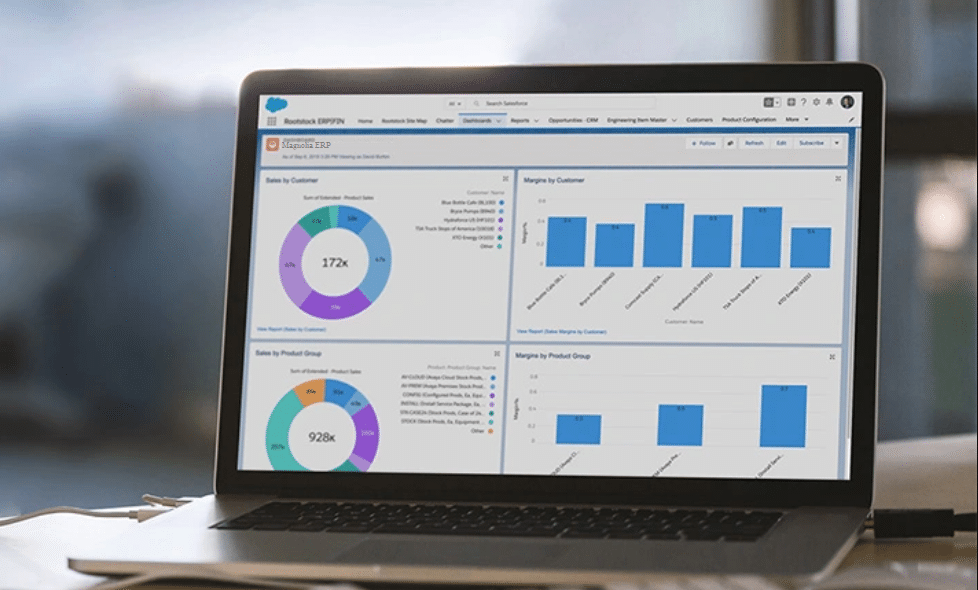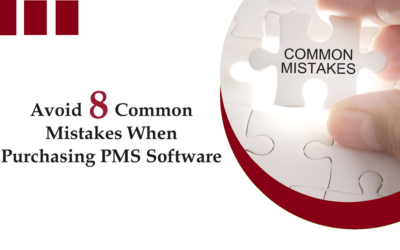
ERP software is a type of business management software that helps organizations to manage and automate their business processes. It covers a wide range of applications, including accounting, human resources, customer relationship management, supply chain management, and manufacturing.
ERP software enables organizations to have a real-time view of their business data and processes, which helps them to make informed decisions and improve their operational efficiency. It also allows businesses to share data and information across different departments and functions, which makes it possible for them to work together more effectively.
ERP software is typically offered as a suite of integrated applications that can be deployed on-premises or in the cloud. Many ERP vendors also offer mobile apps that allow users to access ERP features and data from their smartphones or tablets.
The Benefits of Using ERP Software
There are many benefits to using ERP software in an organization, including:
Improved Efficiency: ERP software helps to streamline and automate business processes, reducing manual effort and increasing efficiency.
Better Visibility: With ERP software, businesses can get real-time insights into various aspects of their operations, such as inventory levels, sales performance, and financial metrics. This visibility helps them make informed decisions and respond quickly to changing circumstances.
Increased Collaboration: ERP software can improve collaboration among different teams and departments by providing a centralized platform for sharing information and workflows.
Enhanced Customer Service: By providing accurate and up-to-date information about customer orders, inventory levels, and delivery times, ERP software can help businesses improve their customer service and satisfaction.
Improved Accuracy: ERP software helps to eliminate errors and discrepancies in data by automating data entry and providing real-time data validation and error checking.
Cost Savings: By streamlining business processes and reducing manual effort, ERP software can help businesses reduce costs associated with labor, inventory management, and other operational expenses.
Scalability: ERP software can help businesses scale their operations by providing a flexible platform that can adapt to changing business needs.
The Different Types of ERP Systems
There are many different types of ERP systems, each with their own benefits and drawbacks. Here are some of the most popular ERP systems:
1. Cloud-based ERP: Cloud-based ERP systems are becoming increasingly popular due to their flexibility and scalability. With a cloud-based system, you can easily add or remove users as your business grows or changes.
2. On-premise ERP: On-premise ERP systems are installed on your company’s servers and managed by your IT staff. They offer more control and customization than cloud-based systems, but they can be more expensive and complex to set up and maintain.
3. Open source ERP: Open source ERP systems are free to use and modify, making them a good option for businesses on a tight budget. However, because anyone can change the code, there may be less support available if you run into problems.
4. Industry-specific ERP: Industry-specific ERP systems are designed for businesses in specific industries, such as manufacturing or healthcare. These systems often include industry-specific features and functionality that helps businesses in that industry run more efficiently.
Common Features and Functionality of ERP Software
ERP software typically includes modules for managing finances, inventory, customer relations, and supply chain. However, the specific features and functionality of ERP software can vary depending on the vendor and the needs of the business. Some common features and functionality of ERP software include:
-Finance management: ERP software can help businesses keep track of their finances by providing modules for financial accounting, reporting, budgeting, and forecasting.
-Inventory management: ERP software can help businesses manage their inventory levels by providing modules for stock control, warehouse management, and order fulfilment.
-Customer relationship management: ERP software can help businesses manage their customer relationships by providing modules for sales force automation, marketing campaigns, and customer service.
-Supply chain management: ERP software can help businesses manage their supply chains by providing modules for procurement, supply chain planning, and logistics.
Components of ERP Software
An ERP software system is composed of several integrated components, each of which handles a specific business function. The most common components of an ERP software system are:
1. Financials: This component manages all financial data and transactions for the business. It includes modules for accounting, accounts receivable, accounts payable, and general ledger.
2. Human Resources: This component manages employee data and HR-related transactions. It includes modules for payroll, benefits administration, time and attendance tracking, and performance management.
3. Manufacturing: This component manages production data and transactions for the manufacturing operations of the business. It includes modules for product lifecycle management, quality control, supply chain management, and production planning.
4. Customer Relationship Management (CRM): This component manages customer data and interactions with the aim of maximizing customer satisfaction. It includes modules for sales force automation, marketing campaigns, customer service and support, and analytics.
How to Implement ERP Software
There are many different ways to implement ERP software, but the most important thing is to ensure that all stakeholders are on board with the project from the start. Defining clear objectives and timelines is critical to success. Once the project is underway, regular communication between the IT team and business users is essential to ensure that the system meets everyone’s needs.
The first step in implementing ERP software is to select the right vendor. FI-ES Systems is a reputable company with a good track record, offers ERP Software – Magnolia ERP. They will work with you to customize the software to meet your specific business needs.
The next step is to install the software and test it out thoroughly before going live. Training employees on how to use the system is also crucial; without proper training, they will not be able to make full use of its capabilities.
If you follow these steps, you can be sure that your ERP implementation will be a success.
Conclusion
In conclusion, ERP software provides a powerful platform for businesses to manage their operations and increase efficiency. It is becoming increasingly popular among companies of all sizes due to its ability to streamline processes, improve accuracy and reduce costs. As the technology continues to evolve, more powerful features are being added that enable even greater control over enterprise resources. Regardless of your business’ size or industry, it may be worth considering using an ERP system in order to maximize performance and profitability.





0 Comments